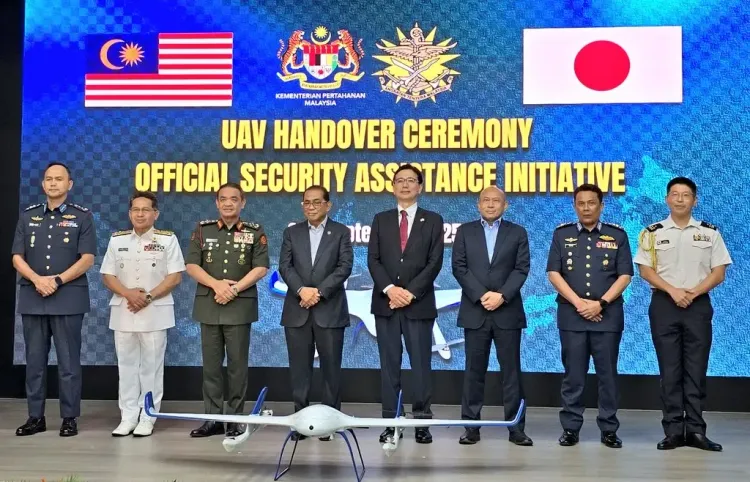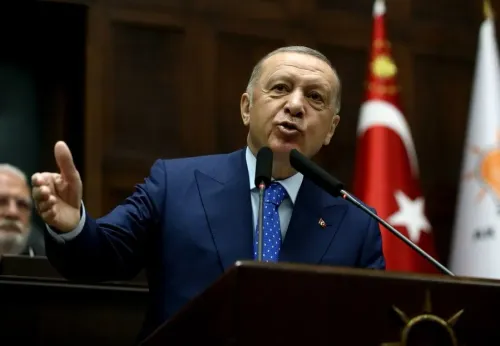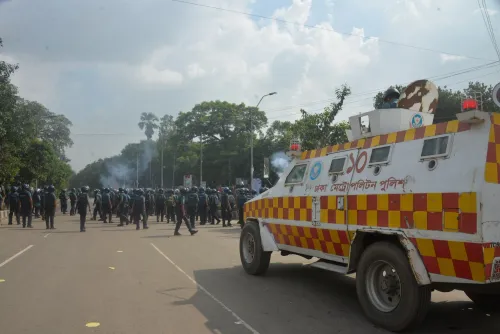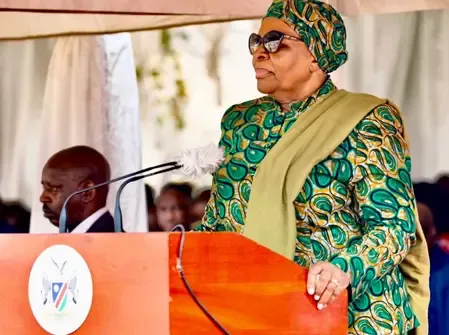How Will Japanese Drones Strengthen Malaysia's Military in the South China Sea?

Synopsis
Key Takeaways
- 14 UAVs and 7 rescue boats received from Japan.
- Part of Japan's Official Security Assistance initiative.
- Aim to enhance maritime border surveillance.
- Addresses territorial disputes in the South China Sea.
- Malaysia needs a comprehensive defense strategy.
Kuala Lumpur, Sep 22 (NationPress) On Monday, Malaysia welcomed 14 Unmanned Aerial Vehicles (UAVs) and seven rescue boats under Japan's Official Security Assistance (OSA) initiative aimed at enhancing the maritime border surveillance of this Southeast Asian nation.
The OSA program was initiated by Tokyo in 2023 to supply defense equipment to allied countries.
As reported by Japan's prominent Kyodo News Agency, Malaysia stands as one of the first four nations designated by Japan for this assistance, given its strategic location between the Strait of Malacca and the South China Sea. Like its neighbors Vietnam and the Philippines, Malaysia is embroiled in territorial disputes with China in the South China Sea, which has seen aggressive actions from Beijing.
The Malaysian military is set to deploy these assets in areas adjacent to the South China Sea.
During a ceremony at the Malaysian Defence Ministry, Japan's Ambassador to Malaysia, Noriyuki Shikata, emphasized the importance for Japan to cultivate a "peaceful, stable, and predictable international environment based on the rule of law," through initiatives that strengthen the security and deterrence capabilities of allied nations.
Moreover, local media in Kuala Lumpur reported that Malaysia is urged to bolster its national defense preparedness by adopting a "Whole-of-Government, Whole-of-Society" (WOGOS) approach to confront increasingly complex security threats, particularly in the South China Sea.
According to Malaysian Defence Minister Datuk Seri Mohamed Khaled Nordin, while the country currently enjoys safety and peace, it is crucial to remain vigilant against both traditional and non-traditional threats. He pointed out that despite the apparent tranquility in the South China Sea, lasting peace cannot be assured.
Nordin remarked that his country, along with other Southeast Asian nations, faces "challenges" in the South China Sea, asserting that with enhanced capabilities, the region can continue to maintain peace and safety while addressing these challenges.









